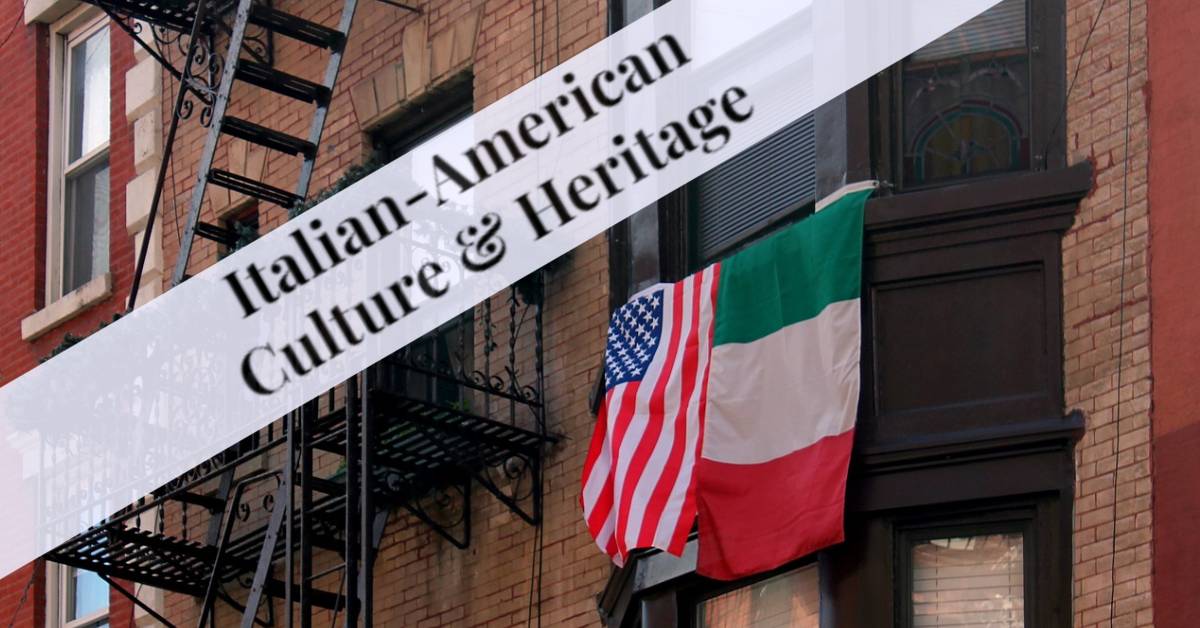In the United States, people are often asked “What are you?” This is typically meant to be an inquiry into ones’ ethnic origins. The reply, for example, is often “I’m German,” or “I’m Irish,” or “I’m Italian.”
This response doesn’t quite square with Italians who were born and raised in Italy. They think to themselves (or out loud, in some cases) “How can someone be ‘Italian’ if they were not born in Italy, do not speak the language, and know little or nothing of day-to-day Italian culture?”
Fair enough, but the Melting Pot that is the United States is somewhat unique in the world. Sure, the Italian diaspora includes Canada, Australia, and several countries in South America. But those countries didn’t really experience the massive simultaneous influx of immigrants from so many other countries of origin.
Therefore, first- and second-generation immigrants in the U.S. would be right to identify as Italians, to distinguish themselves from other immigrant populations sharing the same geographical location. But the tendency to identify oneself in this way has never really faded, and it remains common in the 21st century.
However, we must also mention that the words “America” and “Americans” should be used with some degree of thoughtfulness. Even though within the U.S. the terms “America” and “The United States” are often used synonymously, that isn’t the case in the rest of the world.
After all, Canadians are American, too, as are people from Argentina and Uruguay. And others, of course. It is more accurate to say that Columbus discovered “the Americas,” not America (the U.S.).
Speaking of which, somewhere on this website we’ll get into the question of Christopher Columbus. Was he even “Italian,” given that he was born in the Maritime Republic of Genova 400 years before Genova was part of the Italian Republic? And we all know that he sailed under the flag of Spain.
Then there’s the fact that most scholars believe that Columbus never even saw the continental United States with his own eyes, much less ever stepped foot on U.S. soil. (Plus he was basically lost, assuming that he had found a Western route to India.)
Well, maybe none of that matters much, really. The Italian-American identity goes much deeper than the deeds of one man, for better or worse. We each have our own stories that contribute to the overall narrative. And the collection of these experiences are what make us all proud to be Americans of Italian decent, with a foot in both countries, and the pride of two nations in our hearts.
My Italian-American Experience
My own perspective has evolved over the years. I was born into an Italian-American family in the suburbs of Chicago. Cicero, in fact, Al Capone’s old neighborhood. In my early years, I spent a fair amount of time with my bisnonna, my great-grandmother, who was from a small village in Calabria. She came to the U.S. around the age of 16, so her English was decent, even if she had an accent and always “seasoned” her conversation with some colorful phrases from her dialect.
So I guess I had a typical Italian-American experience in the sense that I assumed that what I saw as “Italian” in my family and my neighborhood was equivalent to the life of the Italians that stayed behind in the Old Country. Obviously that view is very flawed.

Later in life, when I was in my 40s, I made the journey in reverse, relocating to Italy for several years. NOW things got much more interesting. All of my ideas of being “Italian” were challenged and then eventually replaced with a much more accurate picture.
Nowadays I travel to Italy frequently for enjoyment, and also to keep my young daughter, whose mother was born and raised in Sicily, connected to that side of her family’s culture.
I also maintain several websites dedicated to various topics of Italian culture, including my expat experience in Rome, travel to Italy, Italy’s food culture, and the Italian language.
Along the way, I’ve developed sort of a contrarian attitude towards the Italian-American experience. I like to push back against some of the social media groups that engage in endless debates over “sauce versus gravy” and whether or not it’s OK to put mayonnaise on your “Italian Hoagie” (whatever that is).
Instead, I challenge these folks to take a more reality-based approach to exploring their own heritage. That’s not to invalidate their mamma’s Sunday Gravy, but rather try to dig deeper and make the connection to the real Italian origins of this dish.
Join me in a real discussion about our Italian-American heritage! Ciao!

